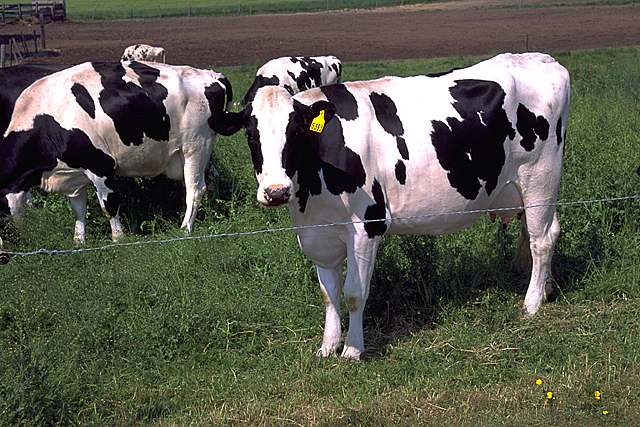Beef may need to come off the menu to save the environment, a  new study suggests.
new study suggests.
Ask most people and they'll likely suggest that one meat is very much like another, as far as the environment is concerned. But using data from the US Dept. of the Interior and the Dept. of Energy on land, fertiliser, water and agricultural outputs, Israel's Weizmann Institute scientist Ron Milo and his colleagues have shown that, per calorie obtained, beef uses 28 times more land, 11 times more water, yields 5 times the volume of greenhouse gases and consumes 6 times as much nitrogen and equivalent calories provided by poultry, dairy, pork or eggs.
Meanwhile, plant-based foods like corn, soybeans and wheat account for between 2 and 6 times less land use, fertiliser consumption and greenhouse gas production. The team did not consider fish in their metrics since this accounts for only about 0.5% of all the calories consumed.
Beef, on the other hand, was one of the most popular foodtypes, accounting for 7% of all consumed calories but is consistently the least resource-efficient to produce of five animal-based footstuffs.
The data are likely also to reflect practices in many other countries including, as the scientists point out, through globalisation as many emerging economies, such as India and China, embrace or emulate US-like dietary practices.
"Our results," says Milo, "offer policymakers a method for calculating some of the environmental consequences of food policies."
The study also informs personal choice, which "collectively leverage market forces for environmental betterment..."










Comments
Add a comment